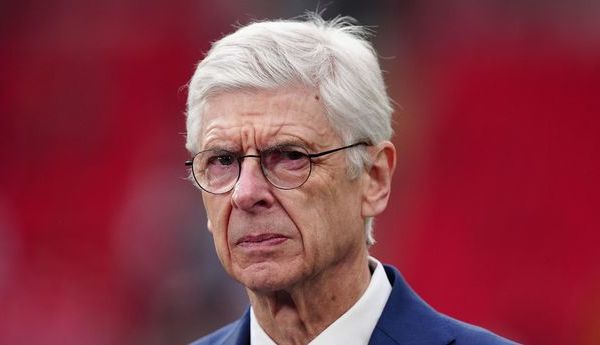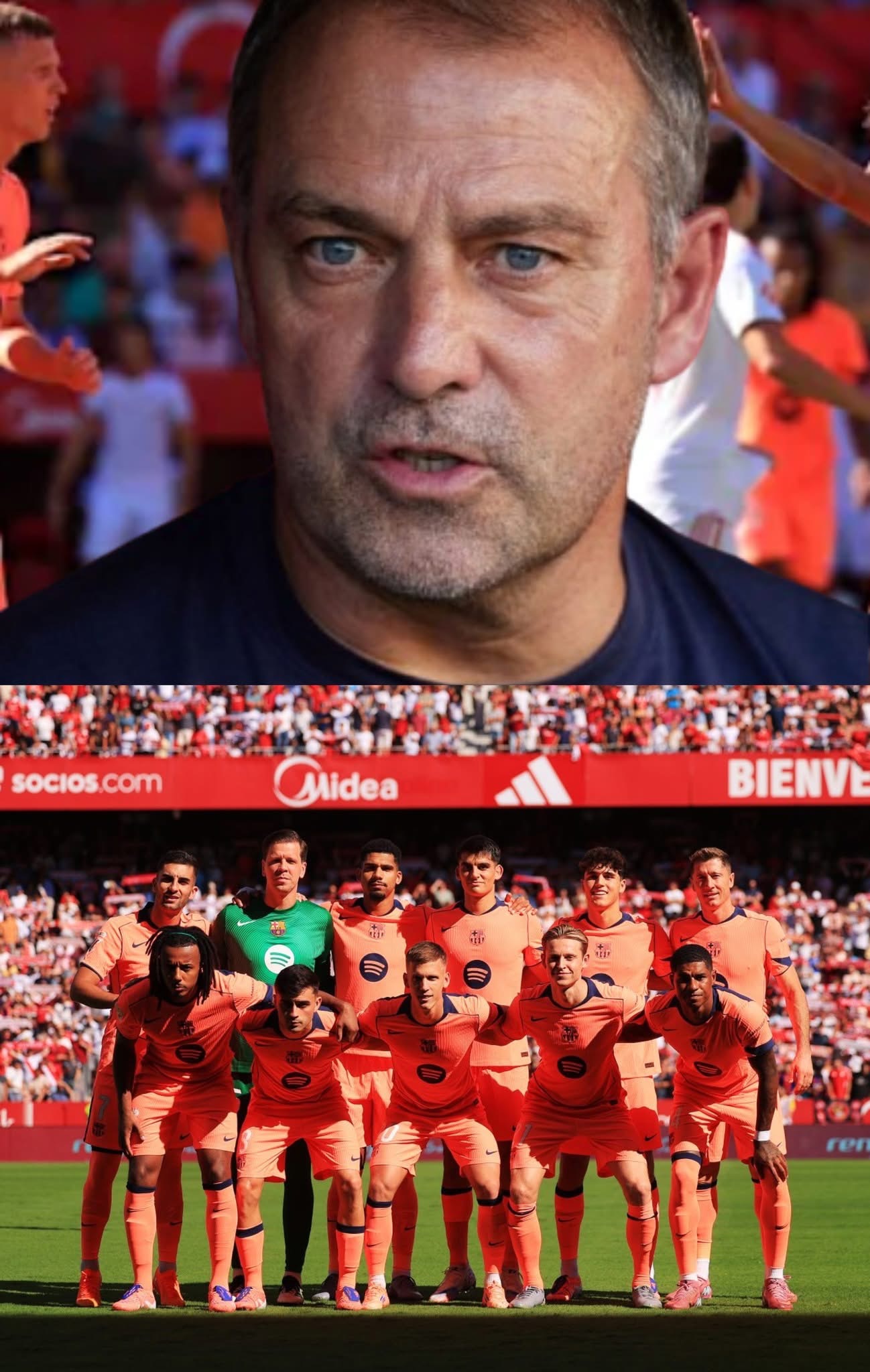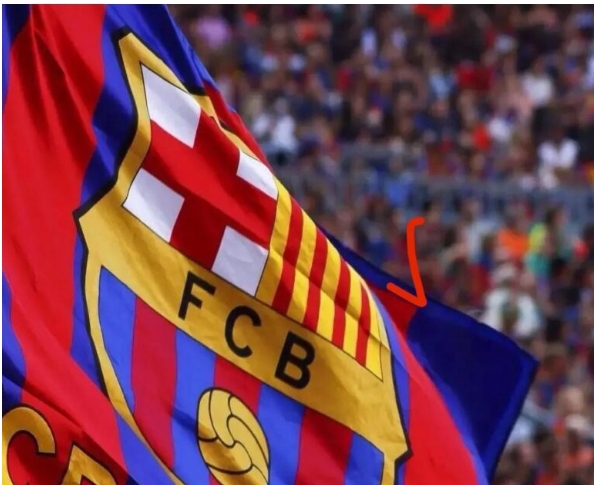Arsène Wenger, the legendary former Arsenal manager, has always been a keen observer of the game, offering valuable insights into football’s most notable managers.
Recently, Wenger shared his thoughts on Barcelona’s current manager, Hansi Flick, following the team’s surprising 2-1 loss to Las Palmas in La Liga on Saturday.
The defeat has put Flick under scrutiny, and Wenger, who has experienced both the successes and challenges of top-level management, weighed in on the difficulties his former Bayern Munich counterpart is facing.
Hansi Flick’s Struggles at Barcelona
When Hansi Flick took over at Barcelona earlier this year, there was optimism surrounding his appointment. The highly successful former Bayern Munich coach was expected to bring stability and success to a club in transition. With his solid reputation from Bayern, many believed he was the right man to navigate Barcelona through the post-Xavi era. However, the loss to Las Palmas exposed several issues that have plagued the team this season.
Although Barcelona initially took the lead, Las Palmas managed to turn the game around, with Barcelona’s defensive weaknesses becoming apparent in the closing stages. This loss, their second of the season, has sparked questions about Flick’s tactical decisions and his ability to handle the pressures of managing a club like Barcelona.
Wenger’s Views on Flick’s Tactics
Wenger expressed understanding for Flick’s situation, recognizing the immense pressure that comes with managing a club of Barcelona’s caliber. However, he also noted that Flick needs to address certain tactical issues, which were evident in the Las Palmas defeat. “At a club like Barcelona, the expectations are immense, and when results go wrong, criticism follows quickly,” Wenger said. “Flick has inherited a talented squad, but there are clear signs that his tactical setup isn’t fully clicking yet.”
One of the key problems Wenger pointed out was Barcelona’s defensive organization. In the loss to Las Palmas, the team appeared disjointed defensively, with poor positioning and a lack of coordination between the defense and midfield. “Defensively, Barcelona looks fragile. Flick will need to work on organizing the defense while maintaining the attacking style that Barcelona fans are accustomed to,” Wenger noted. “There’s a balance to be struck between playing expansive football and being solid defensively.”
The Need for Team Cohesion and Adaptability
Wenger also highlighted the need for greater cohesion within the team under Flick. While Barcelona boasts a collection of star players, Wenger emphasized that Flick should focus on getting the team to operate as a unit, rather than relying too much on individual brilliance. “Barcelona has star players like Robert Lewandowski and Pedri, but football is a team sport, and it’s vital that Flick gets the squad to perform as a collective,” Wenger said. “At top clubs, having good individuals isn’t enough—you need a strong team performance.”
Furthermore, Wenger pointed out that Flick must adapt his tactics to Barcelona’s distinctive style of play. While Flick’s high-pressing, attacking football has worked well in the past at Bayern Munich, Barcelona’s tradition calls for a more patient, possession-based approach. “Flick needs to understand that Barcelona has its own identity, a style ingrained in the club’s history,” Wenger explained. “He must respect that while incorporating his ideas. It’s a delicate balance every manager must navigate.”
What Lies Ahead for Flick and Barcelona
Despite the disappointing result against Las Palmas, Wenger remained confident that Flick can turn things around at Barcelona. “Flick is a top-quality coach, and he has the experience to tackle challenges like these. He will learn from this setback and adapt,” Wenger said. “The key now is for him to ensure the team plays with greater coherence and sharpness, both defensively and offensively.”
Wenger also pointed out that it is still early in Flick’s tenure, and several factors, including squad adjustments and player form, will play a part in shaping Barcelona’s season. “It’s still early days, and there is time to build a team that reflects his vision. Barcelona has a strong squad, and with time, they can get back to winning ways.”
Conclusion
Arsène Wenger’s reflections offer a balanced perspective on Hansi Flick’s current challenges at Barcelona. While acknowledging the difficulties Flick faces, Wenger emphasizes the importance of solid defensive organization, team cohesion, and adapting to Barcelona’s unique demands.
The loss to Las Palmas, while disappointing, could serve as a valuable learning experience for Flick as he seeks to refine his tactics and strengthen the team. With time, patience, and the right adjustments, Flick has the potential to lead Barcelona back to success, but it will require a commitment to tactical evolution and a focus on collective team performance.




